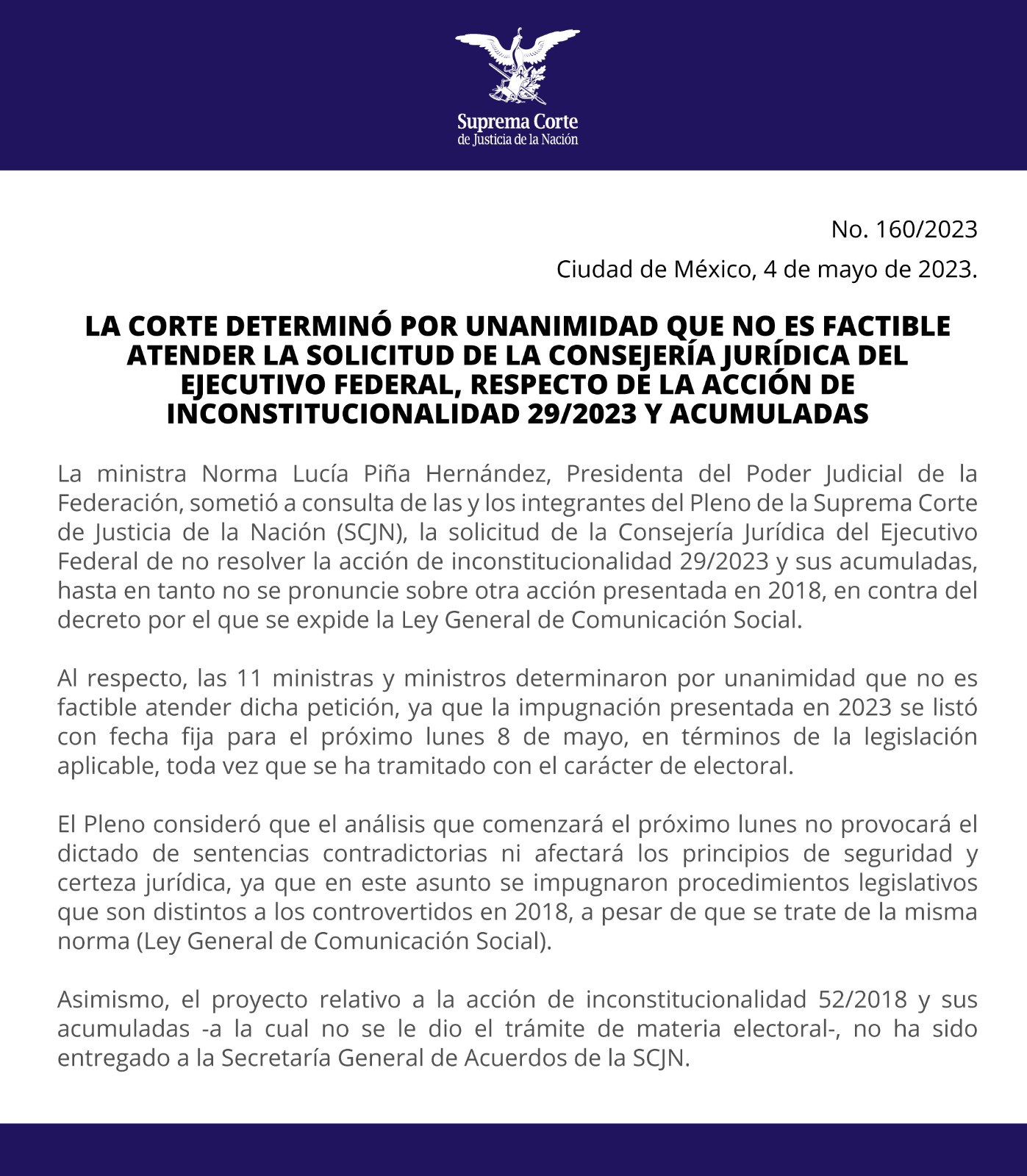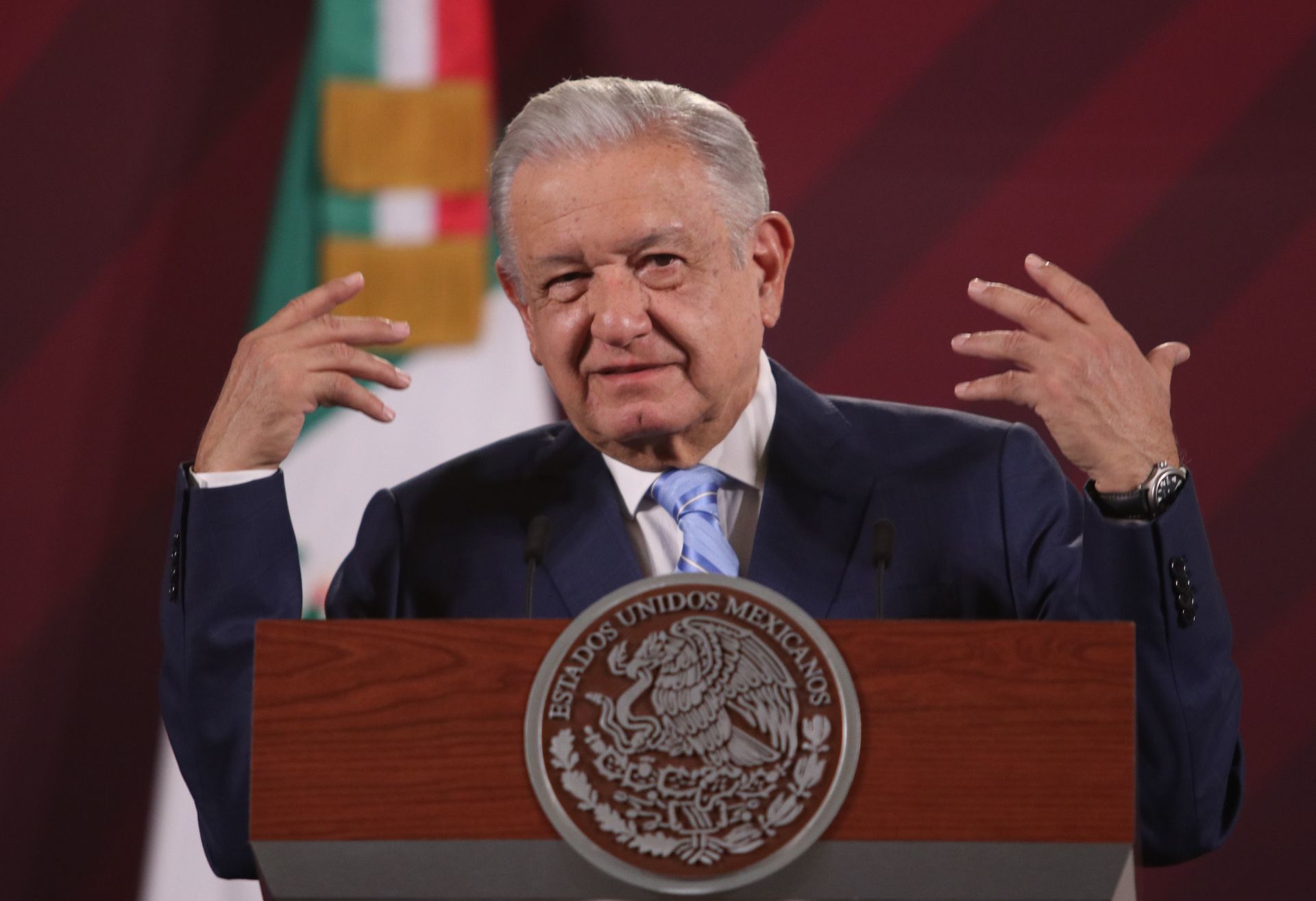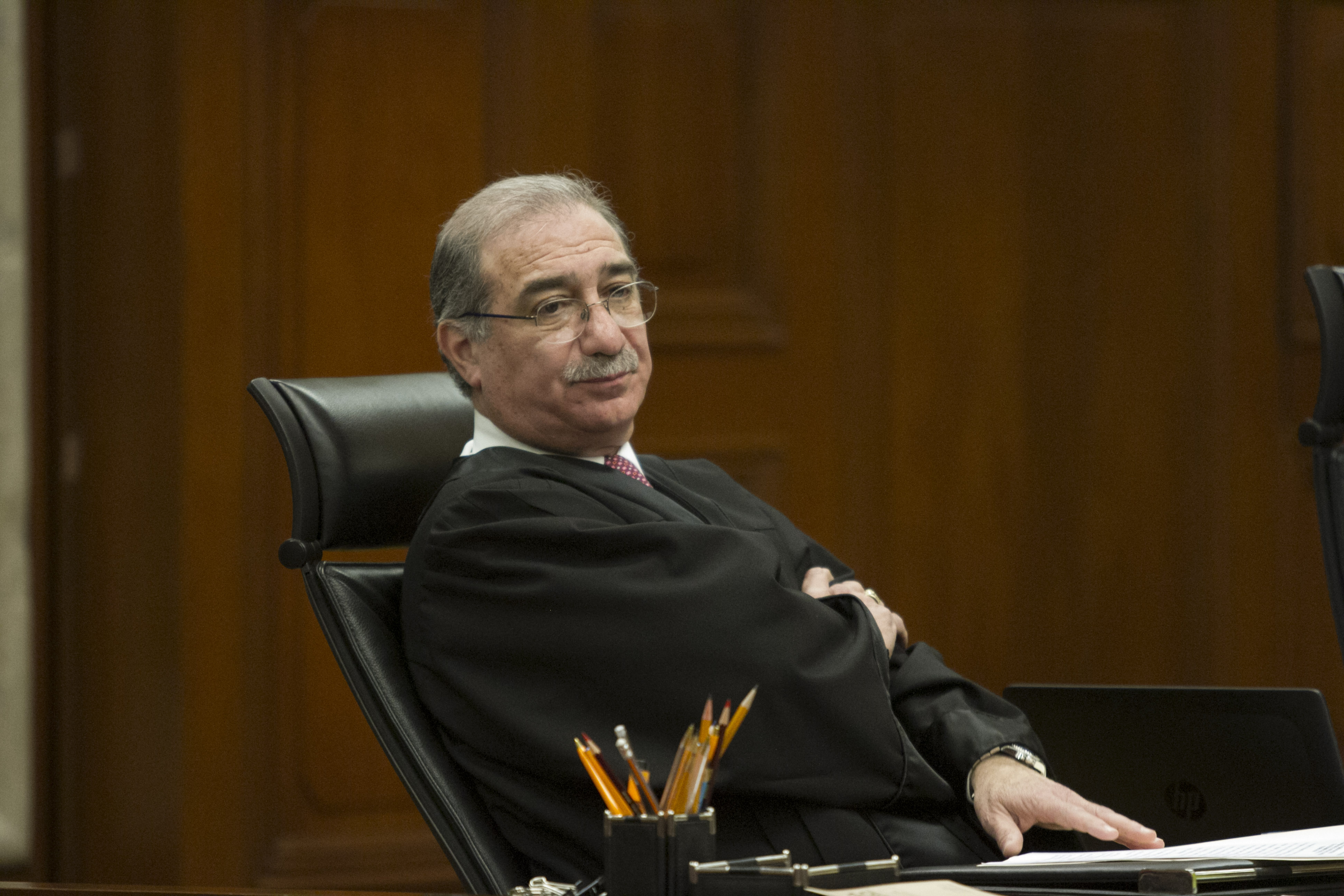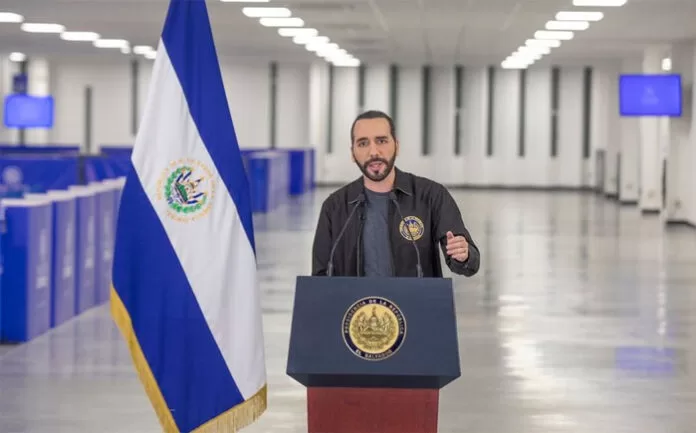The Supreme Court of Justice of the Nation (SCJN) rejected the request that the Legal Counsel of the Federal Executive (CJEF) made regarding the Plan B of electoral reform.
This May 4, Norma Lucía Piña, president of the Federal Judiciary, held a consultation in which the ministers unanimously declared the presidential request to pause the resolution of the unconstitutionality action against Plan B inadmissible.
The petition was not to resolve the unconstitutional action 29/2023 until there was no pronouncement on a previous action, presented in 2018 against the General Law of Social Communication.

Through a statement, the SCJN stated that “in this matter, legislative procedures were challenged that are different from those controversial in 2018, despite the fact that it is the same rule.”
In this sense, it will be next Monday, May 8, that the analysis will begin in which the Supreme Court affirmed that contradictory sentences that affect the principles of security and legal certainty will not be issued.
In this way, the SCJN responded to the request of the Legal Counsel of the Federal Executive in which the Federal Government requested that the judiciary should first resolve the action of unconstitutionality 52/2018 and its accumulated 53/2018 and 55/2018.
The argument of the Federal Executive is that in 2018 the SCJN did not grant the suspension requested in the aforementioned constitutionality action, considering that it was a “general and abstract norm” without an electoral nature.

In the CJEF statement, it was noted that the Supreme Court’s response at that time was “contrary to what was now resolved in the various unconstitutionality action 29/2023 and its accumulated actions.” In this sense, the Federal Government considered that it is necessary to issue a final sentence in relation to the unconstitutionality action promoted in 2018.
Plan B, which was approved by Congress in December 2022, contemplates modifications to the General Law of Social Communication and the General Law of Administrative Responsibilities. However, the National Action (PAN), Institutional Revolutionary (PRI), Democratic Revolution (PRD) and Citizen Movement (MC) parties filed an unconstitutionality action before the judiciary.
In February of this year, Minister Alberto Pérez Dayán admitted for processing the unconstitutionality action promoted by the opposition block to the National Regeneration Movement (Morena). In addition, he declared that Plan B will not be applicable in the 2023 elections in Coahuila and the State of Mexico.
“It contains fundamental legal modifications and if not granted, its application could cause irreparable damage to the democratic system and the fundamental rights involved in it,” said the SCJN in a statement published on February 22.

On May 2, the draft sentence prepared by Pérez Dayán was published on the website of the Supreme Court, in which he proposes to invalidate Plan B. The document argues against the electoral reform for violations of the legislative process in which was approved.
However, the project was public knowledge from previous days because it was published on a news portal. This fact was condemned by the Federal Executive.
Through a communiqué, the presidency accused that the leaking of the sentence project is a violation of General Agreement number 18/2006, which establishes that the projects are reserved information.
“Who is responsible for safeguarding the information of a judicial file in process before the high court? With what intention did someone from the SCJN leak to a media outlet, exclusively, such a relevant draft sentence? In exchange What was the confidential information delivered about?”, could be read in the official message.



